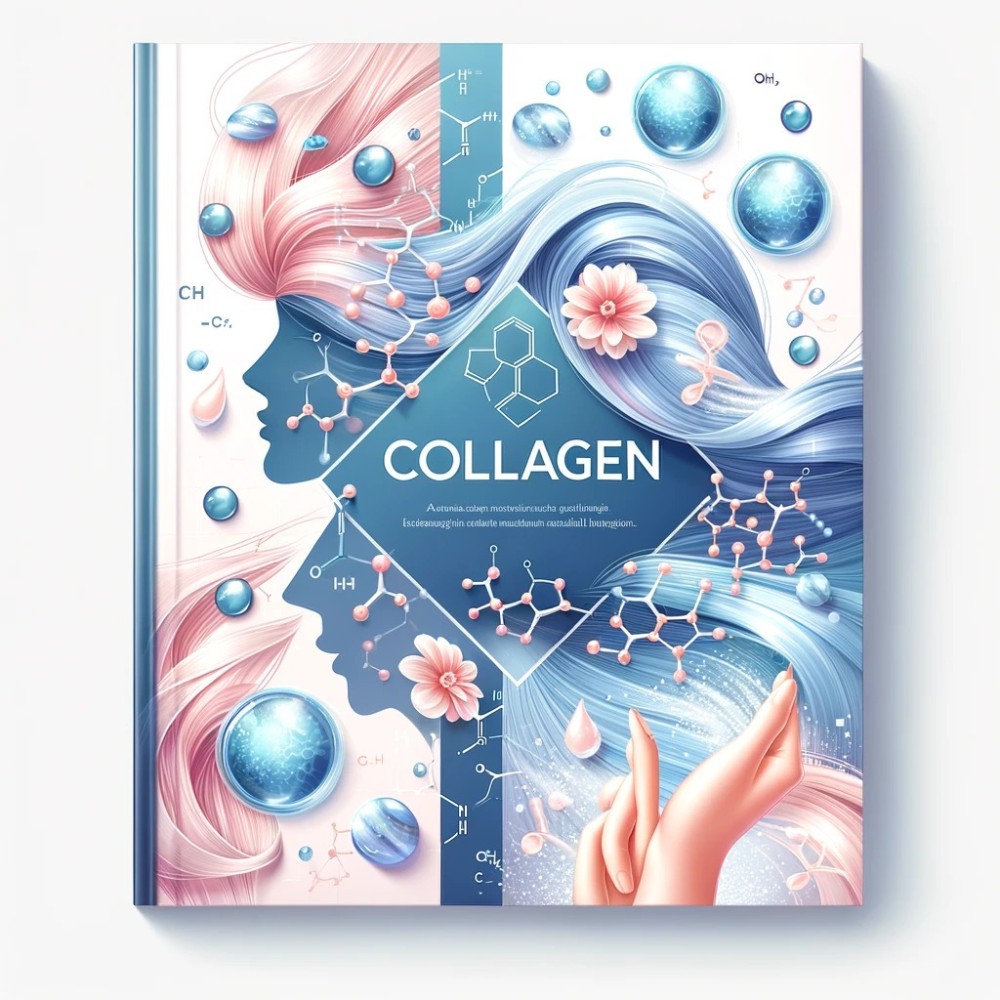
The search for the key to beauty has always been an obsession that has dominated the human mind, and as we advance into an era brimming with innovation, collagen has emerged as the shining star in the beauty care sky. This magical protein, the infrastructure of our skin, takes center stage in our skin and hair care routines, and for good reason. Collagen makes up more than a third of the proteins in the human body, giving our skin its elasticity and strength and our hair its shine and vitality. In this article, we delve into the secrets of collagen, why it's a staple in our beauty routines, and how we can boost its levels in our bodies for radiant skin and healthy hair that radiates vitality and beauty.
As we age, our bodies begin to lose collagen, a protein that makes up 70% of our skin and 80% of our hair.
Signs of aging manifest themselves through wrinkles, deep expression lines, dull skin, and damaged hair.
But is this a cause for concern? Our main concern now is how to re-stimulate the skin's collagen production, especially since it is stingy with us and its production decreases after the age of 20.
As we age, stimulation becomes ineffective, and it becomes imperative to obtain collagen from external sources.
We know what's going on in your head is more complicated than that.
Let's first learn about what collagen is, its benefits for the skin and hair, its types and sources, the differences between sources, and whether it is safe or not.
Collagen is a protein that makes up a large portion of the body's connective tissues, including skin, hair, and nails. It is one of the most abundant proteins in the human body, accounting for about 30% of the total protein content. Collagen is often called the body's "glue" because it helps hold everything together, providing strength and structure to various tissues.
As we age, collagen production slows down, leading to signs of aging: deep expression lines, wrinkles, sagging skin, damaged and split hair, and often hair loss and weakness.
There are at least 16 types of collagen, but the most common are three types that play a crucial role in maintaining healthy skin, hair, and nails.
Sources of collagen: There are three main sources of collagen.
- Marine collagen
- Animal collagen
- Synthetic collagen
Benefits of collagen for the skin:
- Collagen reduces the appearance of wrinkles and lines, improves skin elasticity, moisturizes the skin, enhances its radiance and vitality, and helps in cell renewal to keep your skin fresh and youthful.
- It has many benefits for hair. It strengthens it from the roots, reduces hair loss and frizz, increases the thickness and moisture of your hair, and gives it shine, vitality, and luster.
The differences between these types are explained to you as follows:
First, marine collagen is better absorbed by the body and is suitable for people with allergies to animal collagen.
Secondly, animal collagen is rich in various types of amino acids and is cheaper than marine collagen.
Is collagen safe?
In general, collagen is safe to use and is available for all age groups as appropriate, except in rare cases where a specialist doctor recommends it.
Collagen is not recommended for use by pregnant and breastfeeding women.
Last but not least, it's important to understand the nature of collagen, its key role in skin elasticity and radiance, and how to boost its levels in the body to stimulate its production, especially with age.
If you are 20 years old or older, it is a great time to introduce collagen and its natural stimulants along with a balanced diet.

